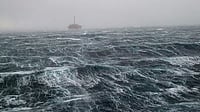One hesitates to recommend prose non-fiction: there is too much of it around. Even if one manages to peruse a sizeable chunk of it, as I do, one has difficulty choosing between books that are interesting but add nothing to what is already general knowledge, and books that make you think anew. The latter are in short supply these days, though I believe my list - with the inevitable omissions due to sheer lack of reading time - contains books that do make the reader pause for reflection.
People hate him or love him. But for me, Terry Eagleton is not just a particularly refined intellectual but one of the most stylish of living writers of the English language. In Reason, Faith, and Revolution: Reflections on the God Debate, he brilliantly relates to the current debates on God and faith, as an atheist who takes religions seriously and treats them fairly. His focus is on Christianity, but his larger arguments remain valid in other contexts too. From a believing Muslim perspective, a more personal and less intellectual engagement is provided by Tariq Ramadan in his What I Believe. Both are nuanced incursions into matters that often make many intellectuals (not to mention 'believers') shoot wildly from the hip.
How can one talk of religion without thinking of women? Natasha Walter's Living Dolls: The Return of Sexism does not engage with God or religion. But it is essential reading - in an age when old colonial notions of biological determinism have been turned around and applied, very successfully and sometimes with blatant disregard to actual research, to the genders. It proves, convincingly to my mind, that sexism is by no means dead in the 'liberated' West. Perhaps, if blindness is required to deny sexism in places like Saudi Arabia, deafness suffices in places like Denmark.
Apart from being one of the great artists of her generation, Amrita Sher-Gil was a woman who went her own way. Vivan Sundaram is Amrita Sher-Gil's nephew and a major Indian artist in his own right. His carefully researched Amrita Sher-Gil: A Self-Portrait in Letters and Writing (Vol 1 & 2) is a fascinating book. With a foreword by Salman Rushdie, the book presents Amrita's story through her own letters and writing, while annotating them with the use of other texts and commentaries.
The on-going financial crisis has released an avalanche of studies, but most of them do not seem to be half as useful in understanding the crisis as Adam Smith and Karl Marx put together. One exception, published in December 2009, so almost eligible, is Paul Krugman's slim book, A Country is Not A Company. The title says it all but, believe me, there is something devilishly divine in the details too! Joseph Stiglitz's Freefall: Free Markets & the Sinking Global Economy, which (alas) is still awaiting its turn on my shelf of books-to-be-read, is reputed to be good too.
Ira Berlin's The Making of African America: the Four Great Migrations is an excellent example of a serious history book written for a large readership and not just for scholars. Berlin's book does not simply trace the history of Black America from slavery to Obama - for this has been done in recent times - but, more significantly, reads this history in the light of the demand for labour and, particularly, immigrant labour (including slaves) in America. In this sense, it is highly topical in our 'globalising' world.
It need hardly be added that, after a number of years of historical travels, William Dalrymple came out with his excellent travel book in 2009, Nine Lives: In Search of the Sacred in Modern India; the paperback edition of this was published in 2010. There is also some excellent travel writing and non-fiction in the just-published Granta 112, a special issue on Pakistan. My favourite was 'The Trials of Faisal Shahzad' by Ayesha Nasir and Lorraine Adams, the author of that excellent novel, Harbor.
Talking of novels and their writers, Elif Batuman's The Possessed: Adventures with Russian Books & the People who Read Them is a rollicking read, and not just for fans of Russian literature like me.
A book that has not reached my desk yet, because it has just come out is Occupation of the Territories, authored by Israeli ex-soldiers who have bravely revealed their identities in order to speak up against army atrocities in Gaza and the West Bank. This might not the sort of reading to end your year with, but it is the type of book that makes one hope for the future. Perhaps the next year will see more books in which Muslims speak up against 'Islamist' terror, Jews critique Israeli atrocities, and Hindus question Hindutva excesses. Not to mention Americans and others, of course.


























